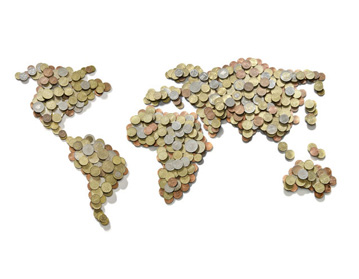INSIGHTS FROM HAYS
Global financial centres of the future
In today’s fast-paced world, which emerging cities will become the global financial centres of the future, challenging New York and London as the top for financial recruitment? The 16th edition of the Global Financial Centres Index (GFCI) provides us with unique insights into how the global financial sector is evolving as a place to work.
The emerging cities to watch
The respondents to the index, which ranks cities in terms of their competitiveness as financial centres, believe that the ten cities most likely to become more significant in the next few years are:
- Casablanca
- Shanghai
- Singapore
- Hong Kong
- Luxembourg
- Dalian
- Beijing
- Gibraltar
- Dubai
- Abu Dhabi
Mark Yeandle, Associate Director at the Z/Yen Group that produces the index, says the long-term future of many emerging centres is strong: Latin America has troubles to overcome but must have a strong future. Africa is the same and some of the less developed Asian centres also have good growth potential. Casablanca, Johannesburg, Sao Paulo, Busan, Zurich, Toronto, Montreal, Singapore and Shenzhen all spring to mind as centres with a bright future.”
Continental China could hold surprises
For financial services professionals looking to establish a career in emerging financial centres, Asia may be the first place to consider. My colleague Grant Torrens, Senior Manager of Hays Financial Markets in Singapore, believes that the region will host several global financial services centres in the near future: “Asian cities that have embraced regulatory change and foreign investment will benefit from the huge growth that the region has experienced. Hong Kong, Singapore, Tokyo, Shanghai and Seoul will be ones to watch.”
Currently ranked sixth in the GFCI table, Japan’s capital city Tokyo offers an alternative to Hong Kong and Singapore, which come third and fourth respectively. My Tokyo-based colleague Razin Ashraf, Manager at Hays Banking and Insurance, thinks that the city will remain a major financial hub regardless of the growth of other cities in the rest of Asia. This is due to the sheer size of its economy, which is the third largest in the world.
“Although there has recently been less international investment, it is still perceived as one of the safer and developed economies to invest in, in the region,” Razin points out.
Elsewhere in Asia, Mark Yeandle of the Z/Yen Group believes that continental China may quickly catch up with regional financial capitals such as Hong Kong once the future of the Renminbi becomes clearer. “Chinese centres are being held back by the uncertainty about the relaxing of the controls in the Chinese currency,” he says. “If and when the Yuan becomes fully convertible, many believe that Shanghai and Shenzhen and perhaps other Chinese centres will develop more rapidly.”
Africa, a land of opportunities
If the Middle East continues to prosper ”due to heavy marketing and good incentives on offer for foreign companies that move there,” Yeandle argues Africa is the last frontier: “The opportunities are in mineral wealth and increased agriculture when water desalination and supply issues are conquered. A vast wealth can be generated and this will need management via a financial services industry.”
With 900 million potential consumers, Africa represents a huge opportunity. The World Ultra Wealth report by the Singapore-based research firm Wealth-X reports that over the next five years, the number of super-rich individuals in Africa – that is individuals worth over US$30m – is expected to grow by an average of 6.9% annually, the fastest rate globally. However, as Yeandle notes, there are many challenges to overcome. These include: “Resolving corruption in some places, introducing greater rule of law, creating or improving institutions, investing in infrastructure and education the workforce”.
Yeandle believes that Casablanca, which ranks at 52 in the GFCI index, and Johannesburg in 38th place are the centres in the region with a better chance than most. In 2010, the port city of Morocco launched Casablanca Finance City (CFC) with the aim of becoming a financial hub for North and West Africa. By offering fiscal and administrative incentives, it has already attracted many international financial institutions such as BNP Paribas, AIG and Boston Consulting Group.
Meanwhile, with arguably the best financial infrastructure of the continent, Johannesburg is already Africa’s number one financial hub, but the South African city could become even more prominent on the global scene. In April 2014, Reuters reported that the chairman of Shanghai Zendai Property, Zhikang Dai, said that the Chinese company would invest US$8bn to develop a new city near South Africa’s commercial capital called ‘Modderfontein New City’. His’s vision is to transform the city into the ‘New York of Africa’. For forward looking financial services professionals, this sounds like an exciting prospect.

